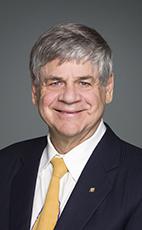Mr. Speaker, before I comment on the member's speech, he took a gratuitous shot at our party in the early part of his speech. He suggested that we had all the truth.
I would suggest that it is the Bloc that thinks it has all the truth. It always votes the same way. Bloc members are never thoughtful on different positions. They always think that sovereignty is the only way. The Bloc thinks it has the truth, whereas on this particular bill, when first nations brought it forward, Bloc members did not make one point in favour of the bill.
On our side of the House, we have members speaking on both sides of the bill. We are not saying that we have the truth. A number of Liberal members have spoken against the bill. I have mentioned that Chief Roberta Jamieson and Chief Paibomsai have approached me and that they are against the bill. I have tried to discuss issues that they have brought forward. I do not think the member should be suggesting that we are the ones who think we have all the right answers.
The member brought up the issue of optionality and mentioned that the NDP member had said that it was not optional. I will make it quite clear to everyone that this bill is totally optional. If first nation people want to buy into one of these financial institutions, they sign up. No first nation has to sign up. No first nation has to collect property taxes. There are already roughly a hundred or so that are collecting property taxes. They have chosen to do so under the Indian Act. They have that power under the Indian Act.
They can stay under the Indian Act and continue to collect taxes. They could stop collecting taxes, or they could collect taxes under this particular bill. The purpose for that or the reason why the first nation approached us and asked us to do this is to help them get some financing that they could not get before.
All this does is gives them that tax collection ability, which they have had for many years, in a structure that would help them get bonding. It is totally their--

